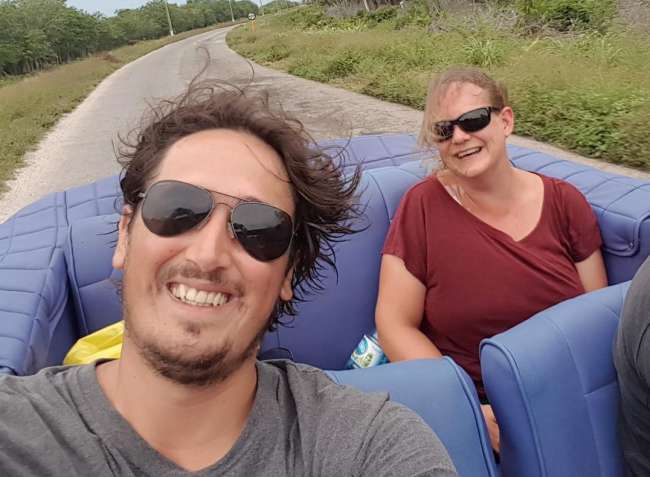Mexico: Valladolid
Ipapashiwe: 14.01.2018
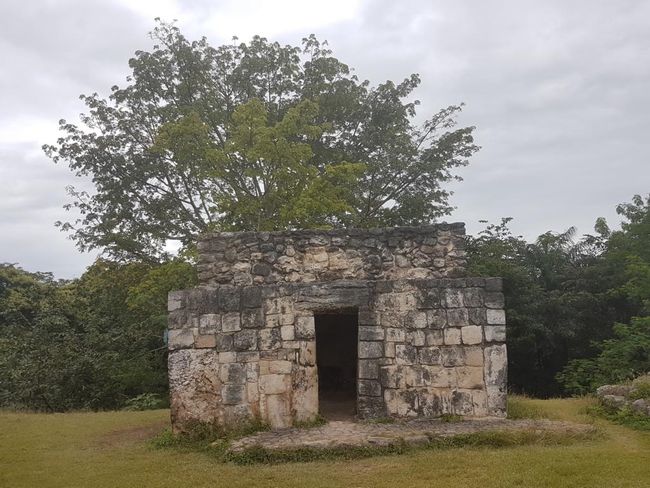
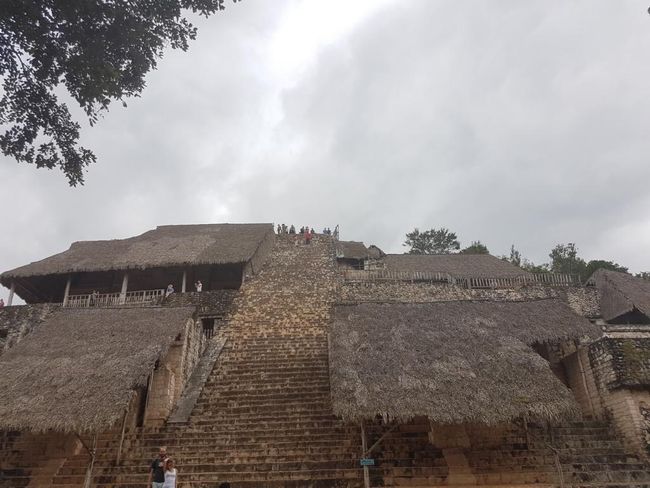
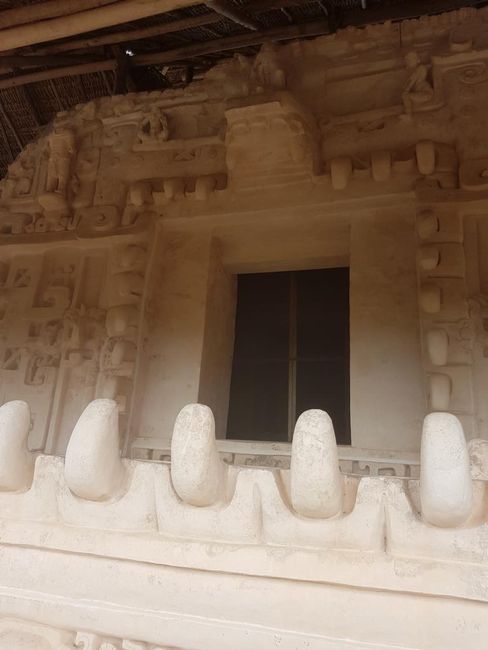
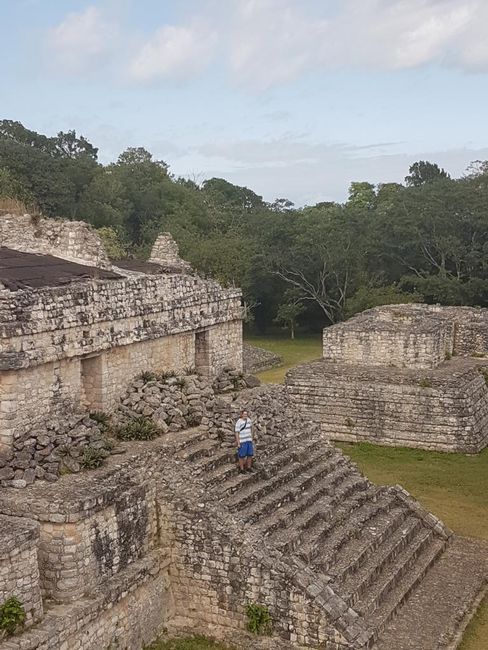
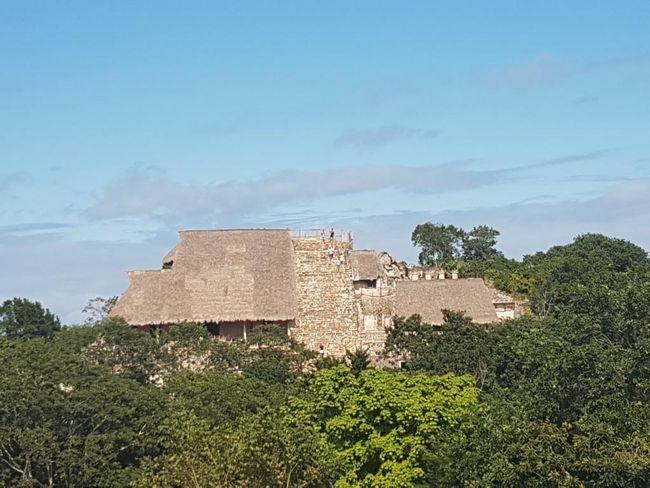
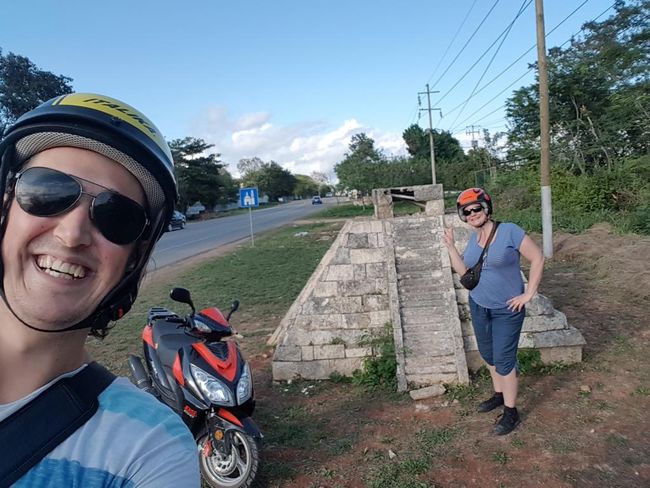
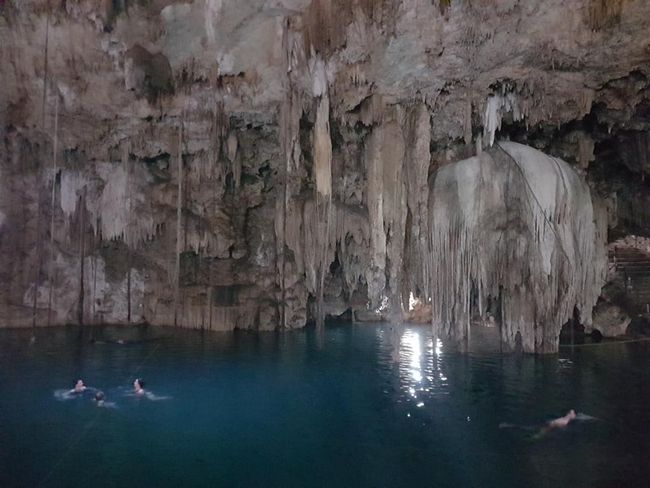
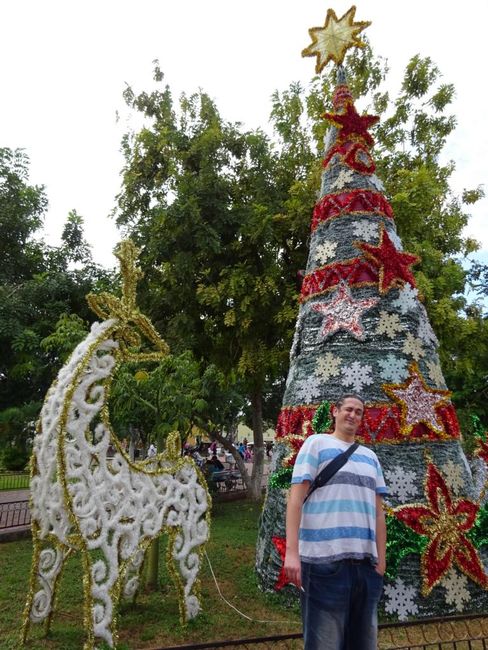
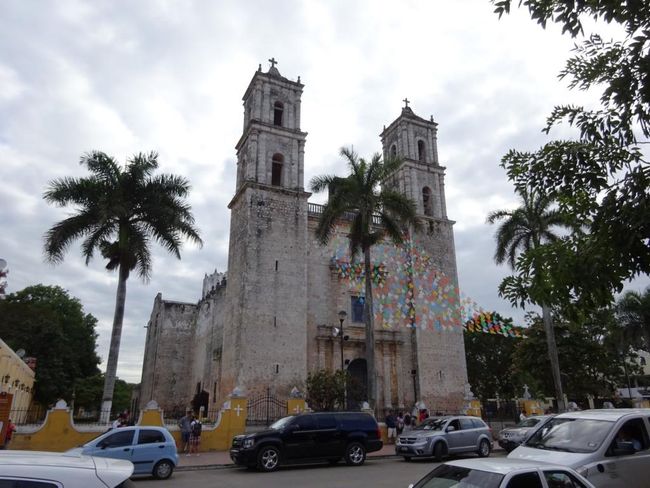
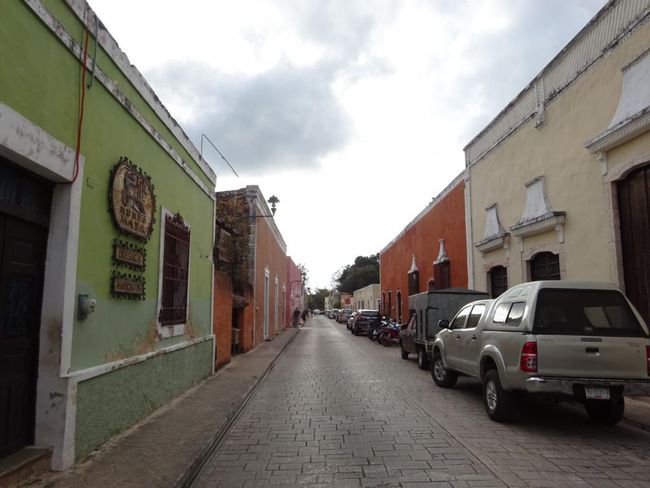
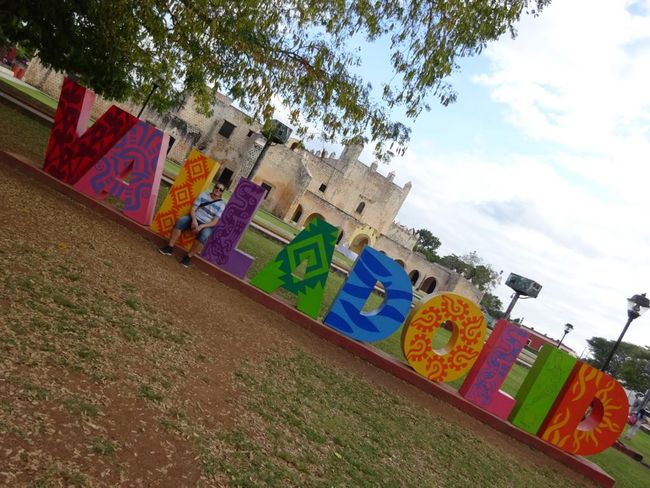
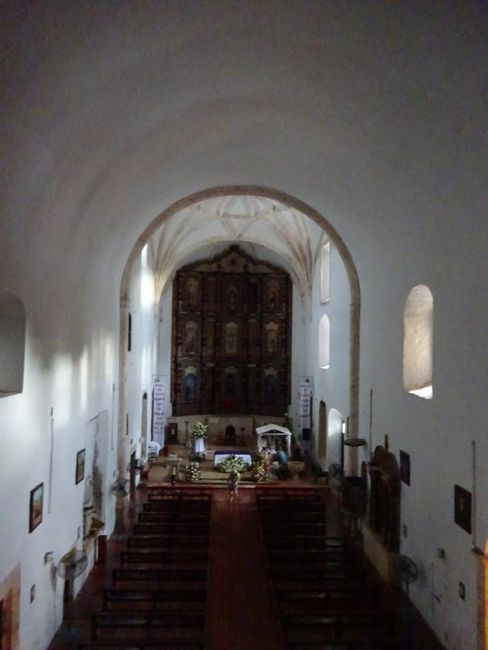
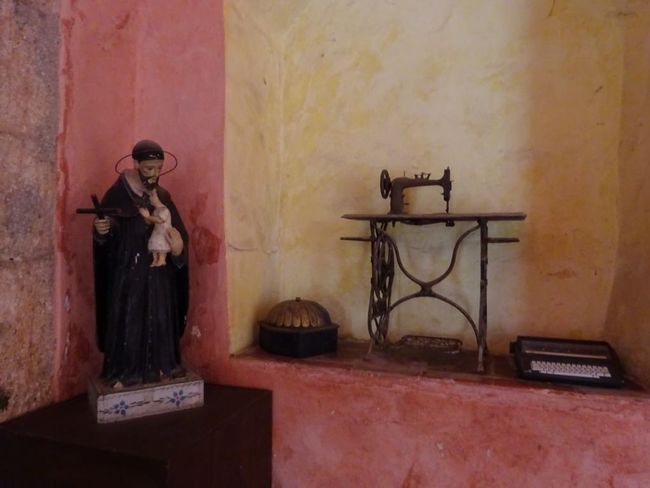
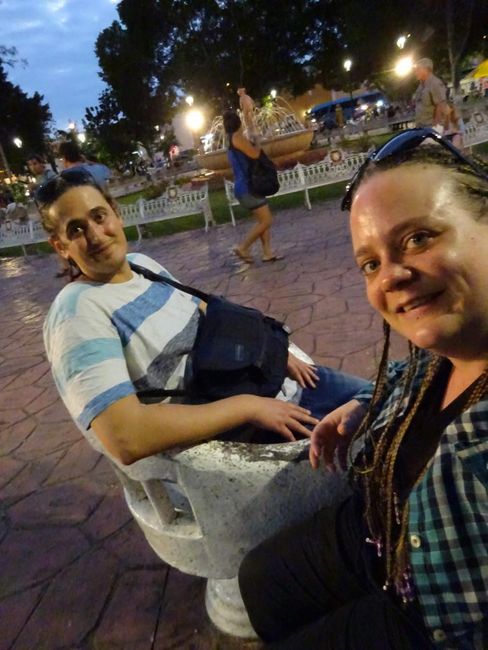
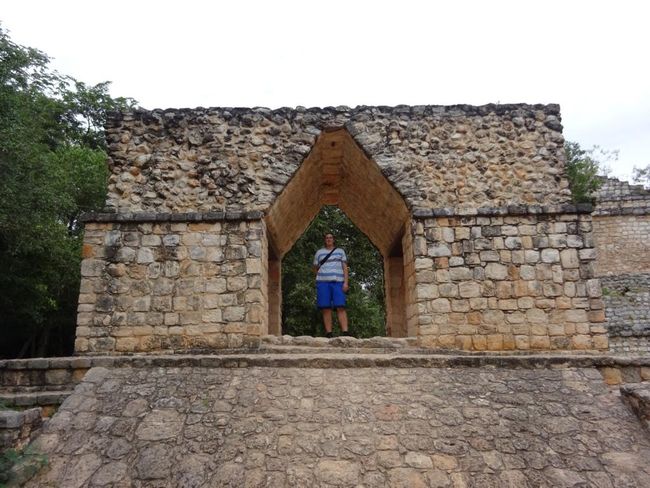
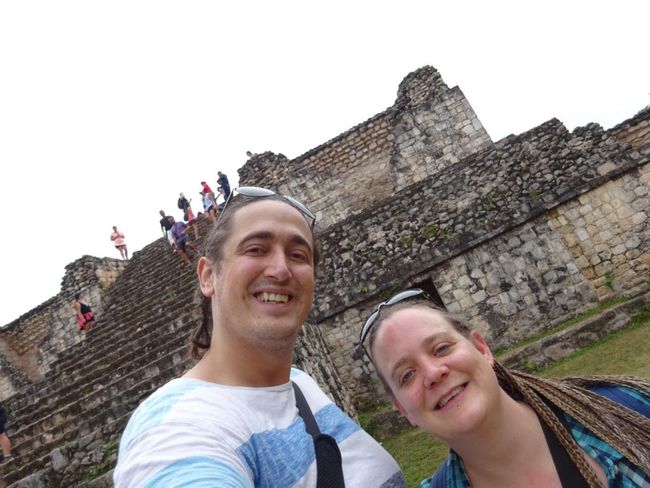
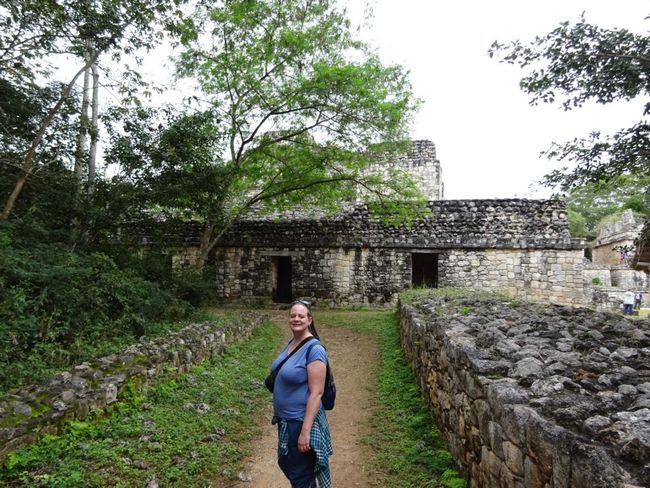
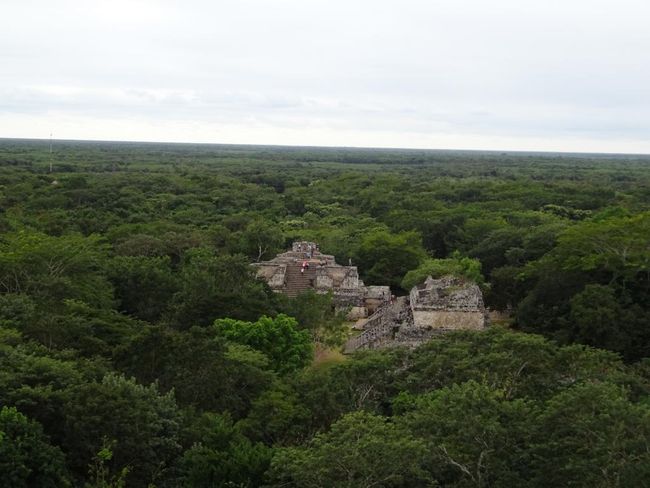
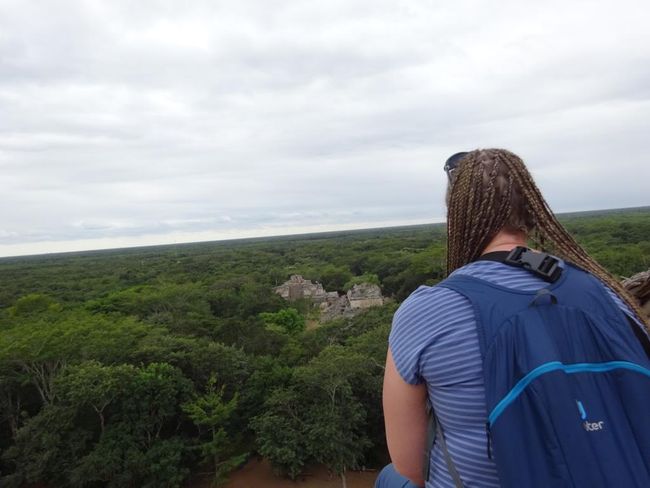
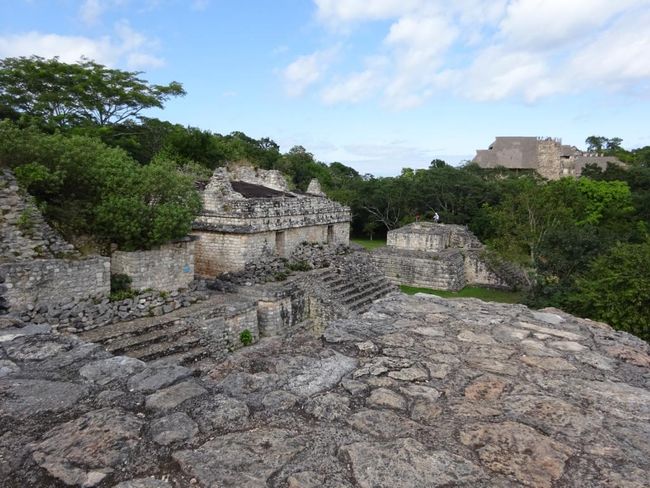
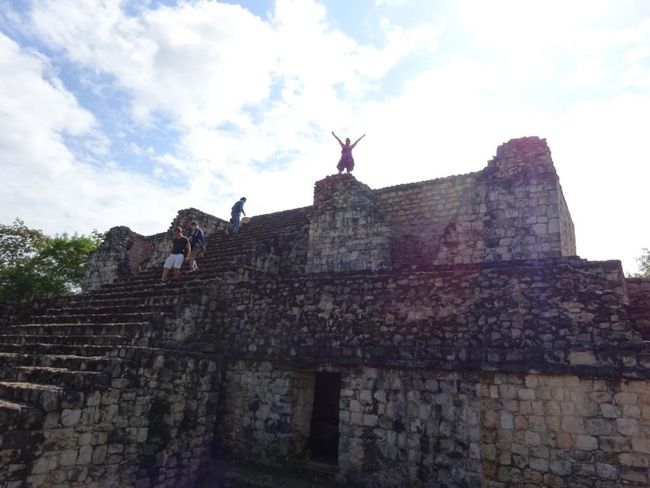
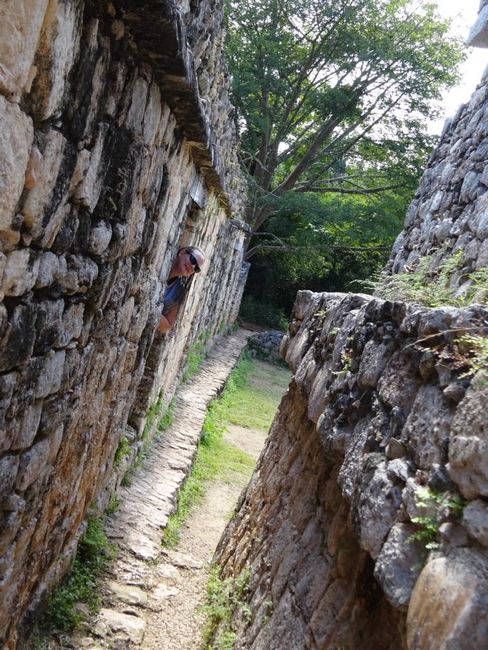
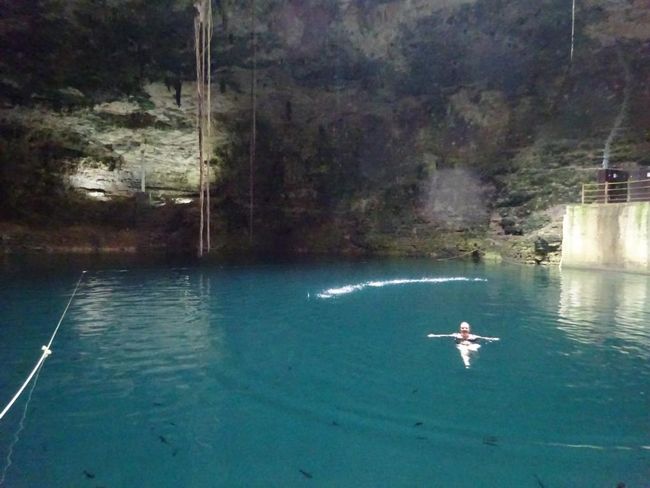
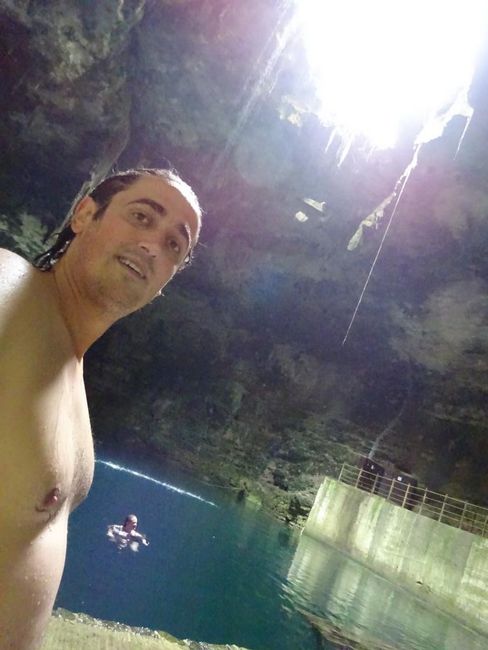
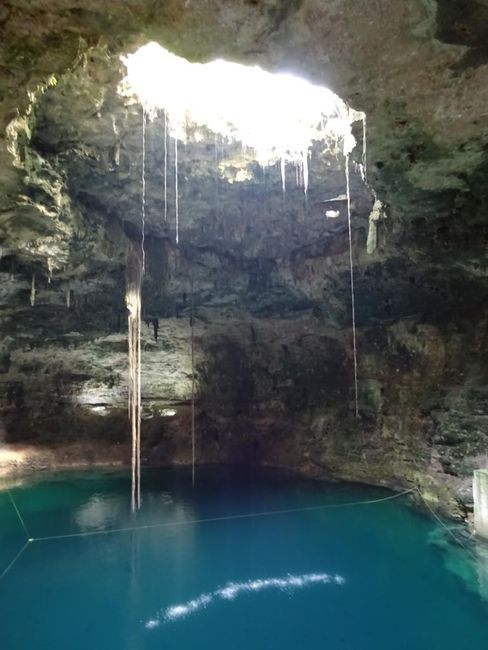
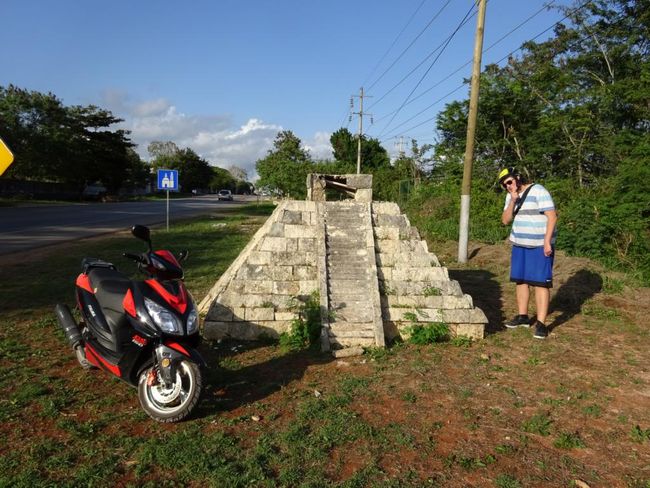
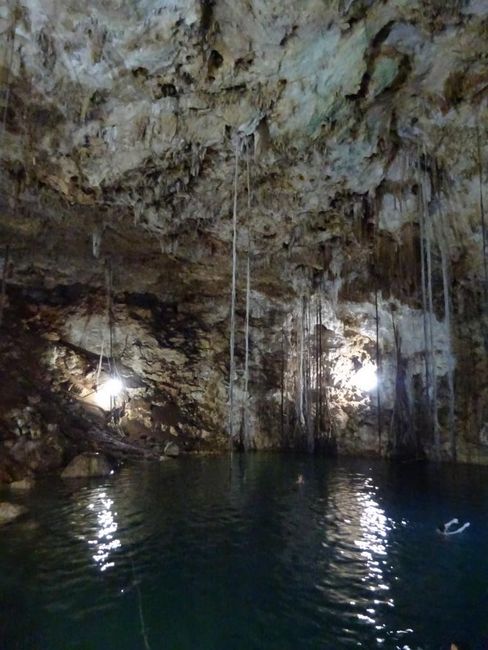
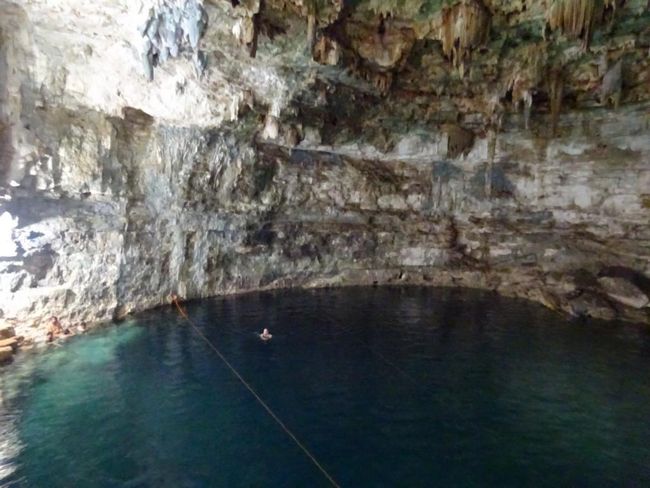
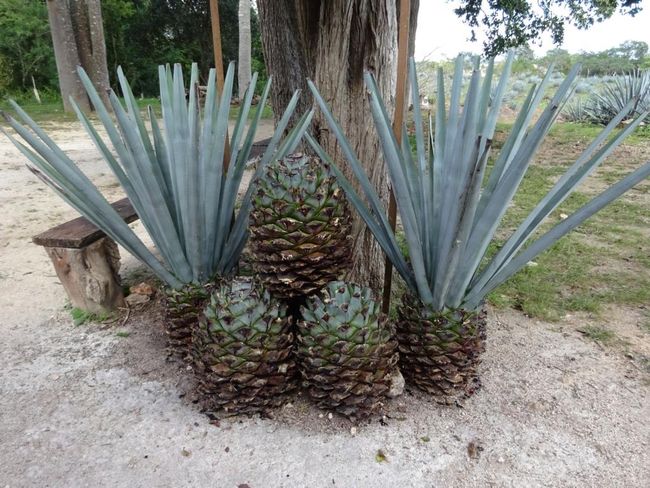
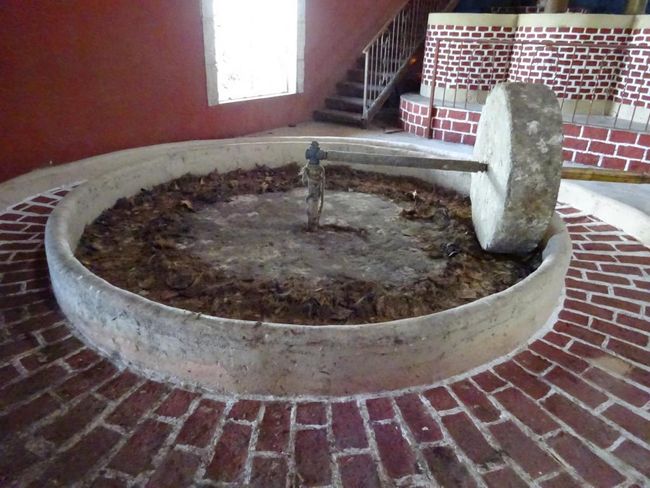
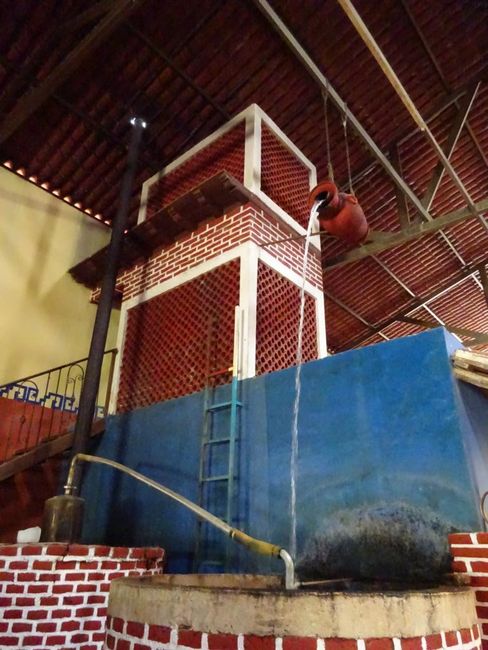
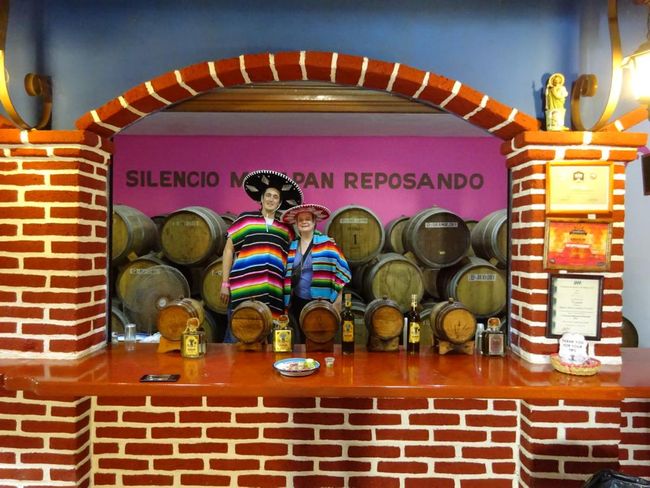
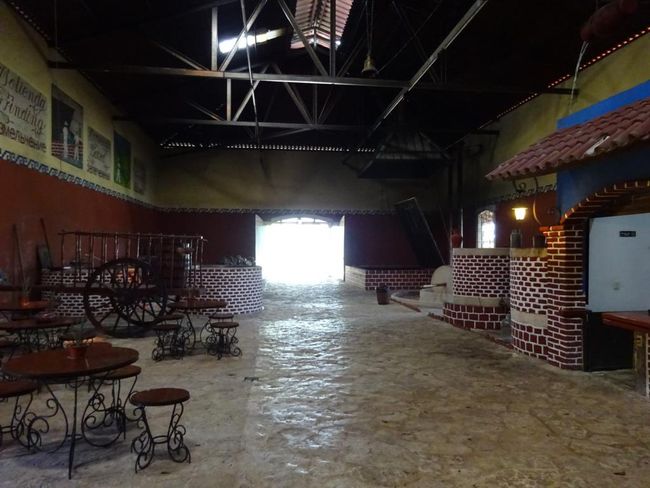
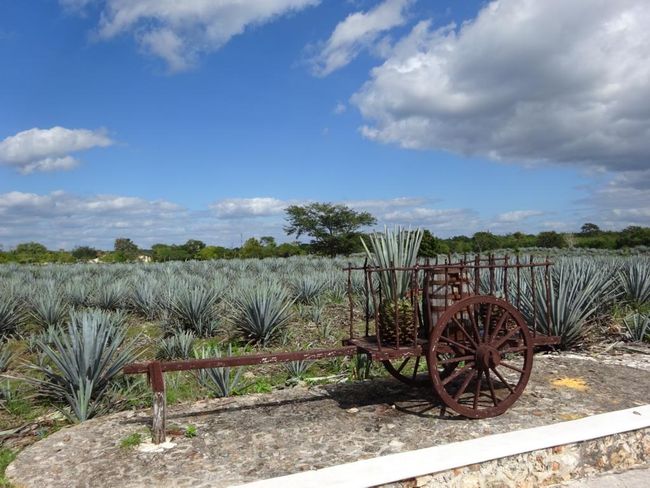
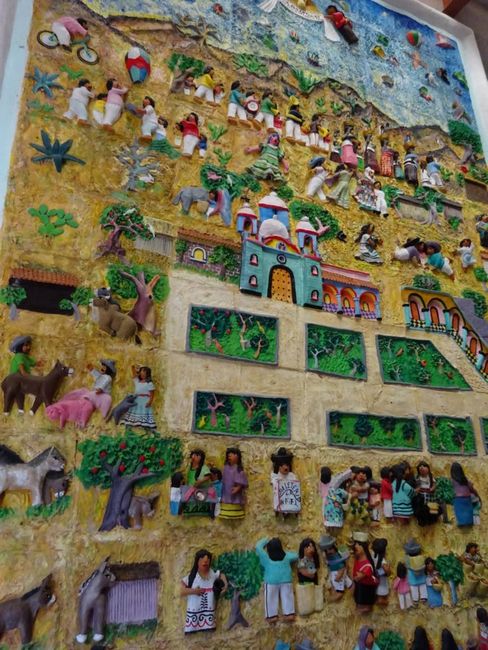
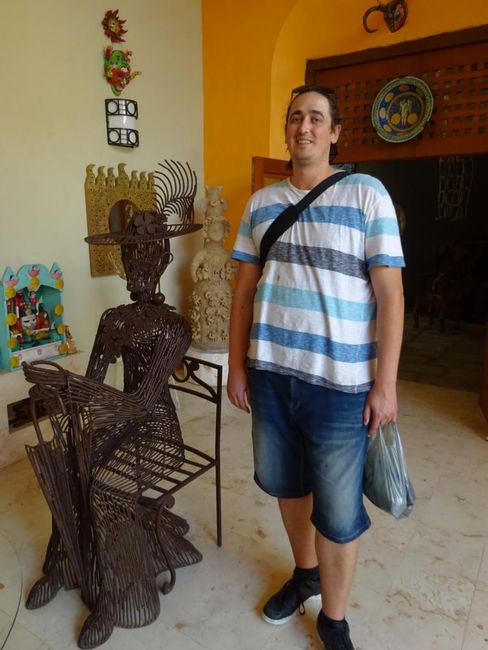
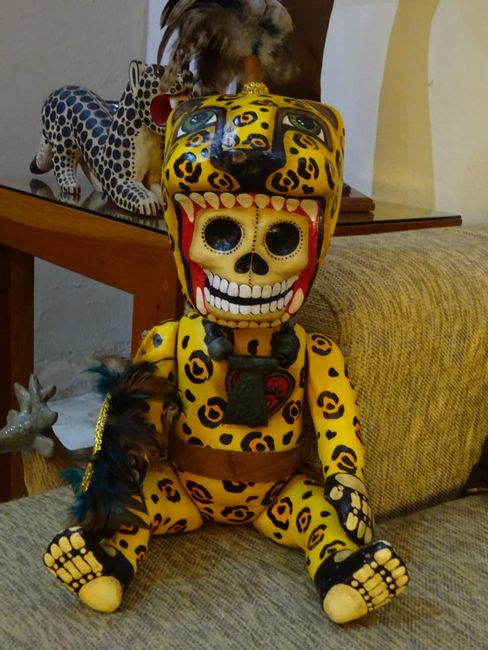
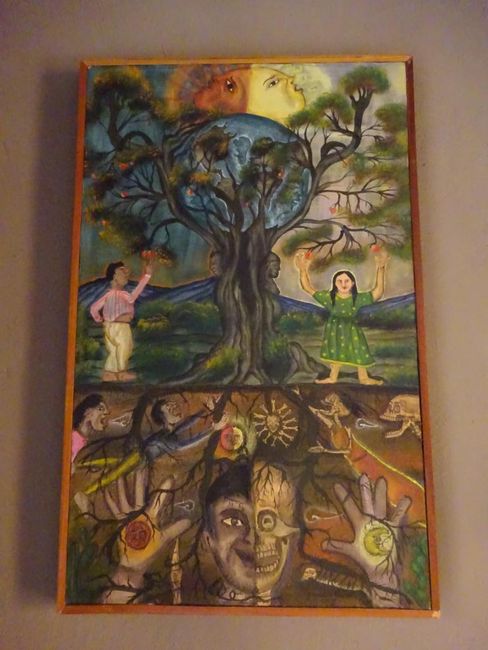
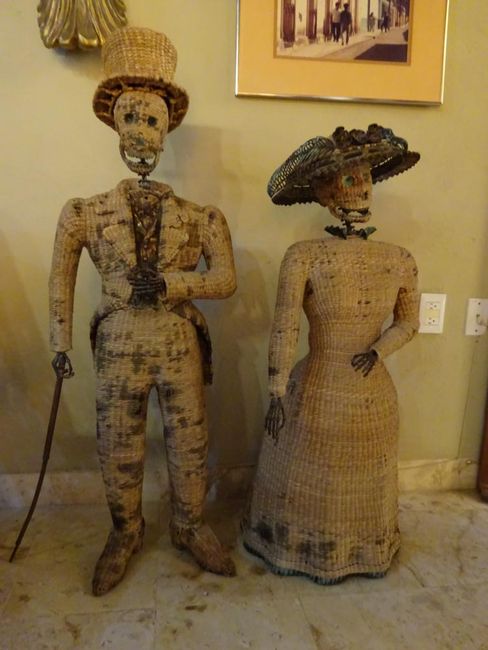
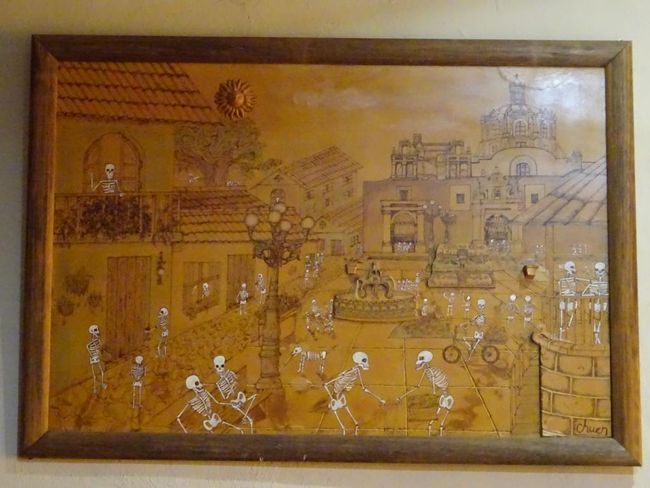
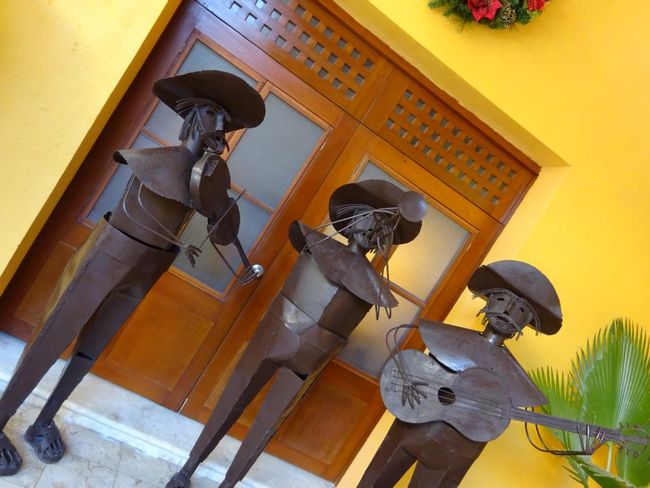
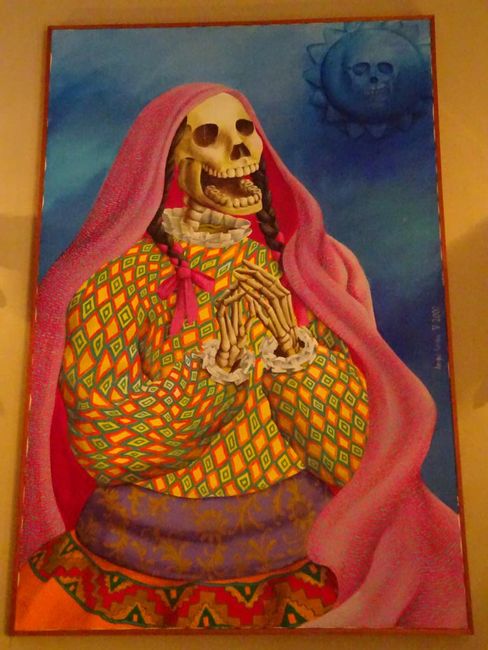
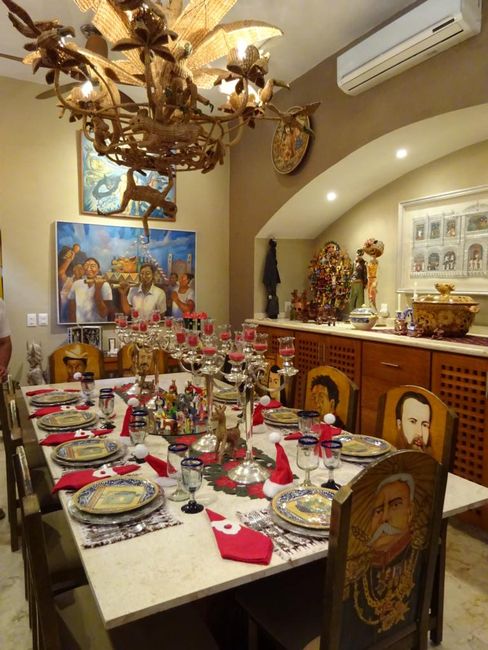
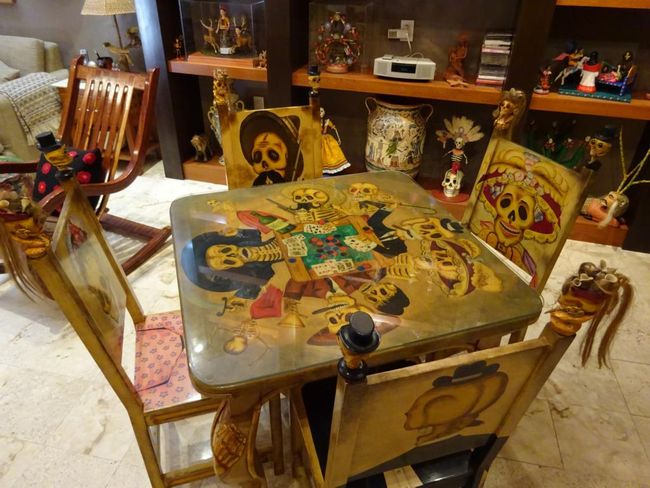
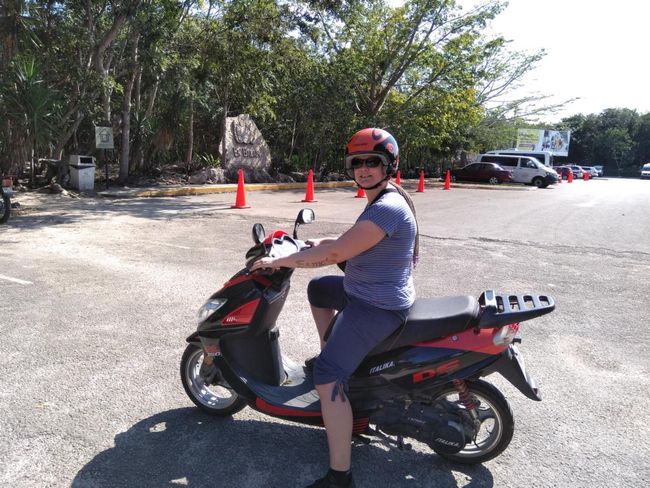
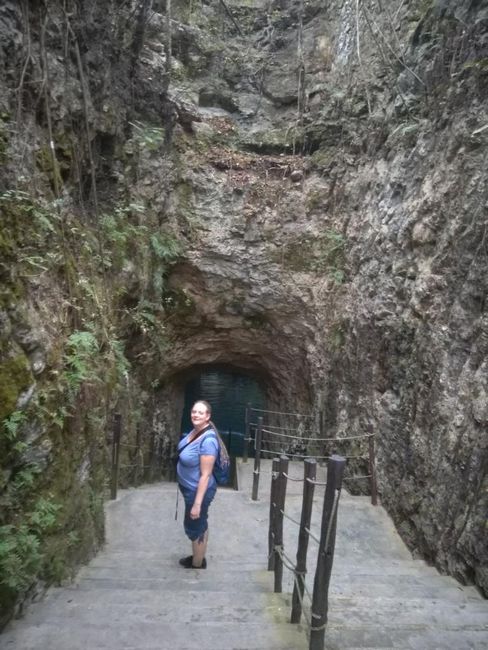
Bhalisela kwincwadana
We drove relatively spontaneously to Valladolid, and after all the hustle and bustle in Cääncuun, we had a relaxed time here.
We rented a scooter for a day so that we could independently visit the sights in the area, and it was really fun. The only downside was that we didn't realize until the journey back, when it was already dark, that the scooter's light wasn't working. So we drove back with the hazard lights on and were promptly stopped by the police. They were friendly and let us continue when we explained that it was a rental scooter and we weren't far from the rental station.
First, we went to Ek Balam, a smaller Mayan ruin city that is about 23 km north of Valladolid. We didn't read anything about it, but we just drove there and wandered around a bit, so to speak, as an introduction to the Mayan ruins tour through Central America. It was nice, there were some temples to see and climb.
Afterwards, we visited 3 cenotes around Valladolid. A cenote is a sinkhole-like limestone hole that formed by the collapse of a cave ceiling and is filled with fresh water. The term comes from the Maya of the Mexican Yucatán Peninsula. More than 1000 cenotes are known in the Mexican state of Quintana Roo, a much smaller number in the neighboring state of Yucatán and in Belize. They have an average depth of about 15 meters, occasionally over 100 meters.
First, we visited the Hubiku cenote. At first, we wondered about the relatively high entrance fee (about 12.5 Fr / person), but it quickly became clear that the price included a lunch buffet. How convenient that we hadn't eaten anything yet. Looking back, it was also the most beautiful of the three cenotes we visited. Since it had a quite large hole in the ceiling, there was much more daylight than in the others, which had to be more artificially illuminated. There weren't many people, and the few who were there hardly went into the water because it was really cold. But that didn't stop us, so we practically had the whole dreamlike pool to ourselves. The water was absolutely clear and extremely deep, the locals said it was probably about 80m deep. Many black fish live in the water, swimming around you. Unfortunately, the beauty of the place doesn't really come across in the photos.
Then we went to the two cenotes X'Keken and Samula. Both were very beautiful too, had a bit more of the cave atmosphere, as some stalactites hung from the ceiling and it was a bit darker. There were a few more people here, and we also took another short bath.
In Valladolid itself, there wasn't really much to see. There was a small souvenir market on the central plaza and a park where you can sit comfortably in the shade. We were surprised how many tourists there were here, as this place was entirely unknown to us before. But due to its proximity to Chichen Itza, it is obvious that many people take a tour there from here.
We visited the Templo de San Bernardino, a monastery that is advertised as very beautiful in the travel guide. It was anything but beautiful, it is an old pile of stones without any charm, so you can safely save yourself the walk there.
We also visited Casa de los Venados, and that was really quite funny. It is a private house of an American couple, where you can visit their private collection of Mexican folk art, which they have accumulated over the years. There are over 3000 works to see, and it is really entertaining. You can only visit the art-filled house as part of a guided tour, and in return, a donation is expected, which then benefits charitable projects in Mexico. The owner was also present and you could talk to him, but we didn't have the opportunity as he was immediately occupied by his fellow countrymen who were on the tour with us. The couple are art and collecting enthusiasts, and in my opinion, it is a fine thing to grant everyone access to this truly impressive collection. And the fact that the whole thing serves a good cause (these people apparently already have enough money themselves) is also great. Therefore, Casa de los Venados is really recommended if you happen to be in Valladolid.
We also visited a small tequila distillery just outside of Valladolid. There was a short tour (about 15 minutes) and you could taste the in-house 5 varieties of tequila, which differ in their aging duration. Not exactly a full day program, but quite interesting. The tequila produced here is made by hand or with the help of horse power, and this brand is not available anywhere else, only in the shop that belongs to the distillery. Accordingly, the quantity produced is not very large. The tequila is made from the piña of the agave plant, which has to grow for about 7 years before. The plants grow right next to the production hall in a large field. The leaves of the plant are used to extract fibers, which are then used, for example, to make textiles. The production of tequila from the plant takes only about 2 weeks before it is aged for several years in barrels.
We more or less went directly to the distillery after waking up, which means that we downed 5 tequila shots each for breakfast. Accordingly, the rest of the day went by quite lightly.
Bhalisela kwincwadana
Phendula (1)
Manuela
Hallo hallo ihr zwei,
schön das wir Euch wieder begleiten können. Sind diese Tempel jünger als jene in Kambodscha oder besser unterhalten? Die sehen aus wie neu 😂.
Ihr habt Euch richtige Reisefrisuren zugelegt was......🤣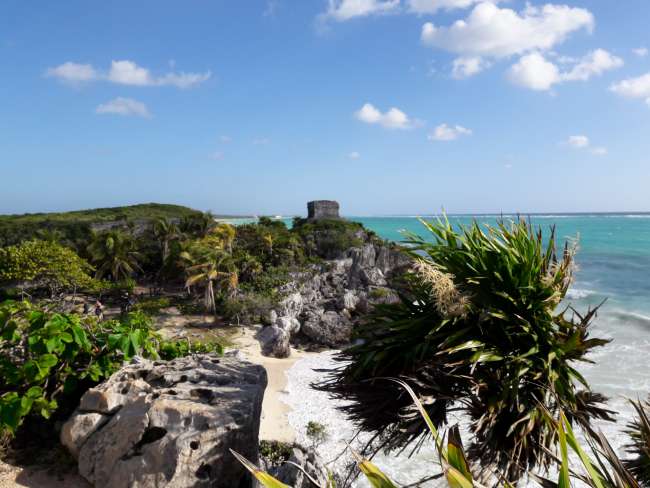
Iingxelo zohambo Mekhsikho

